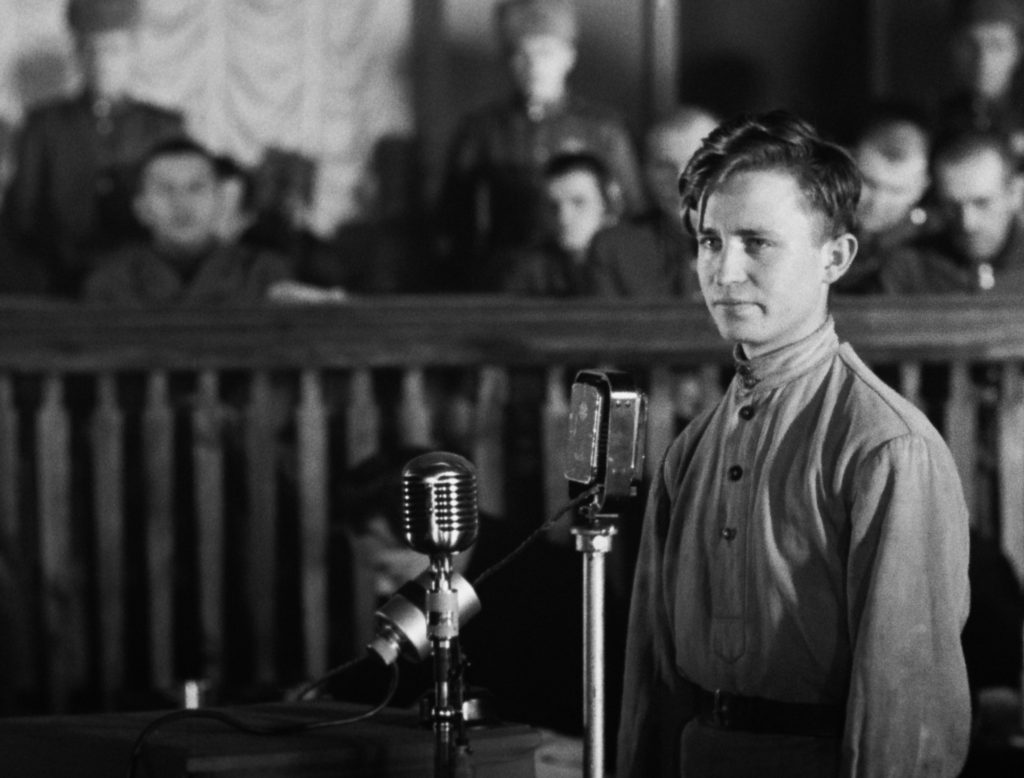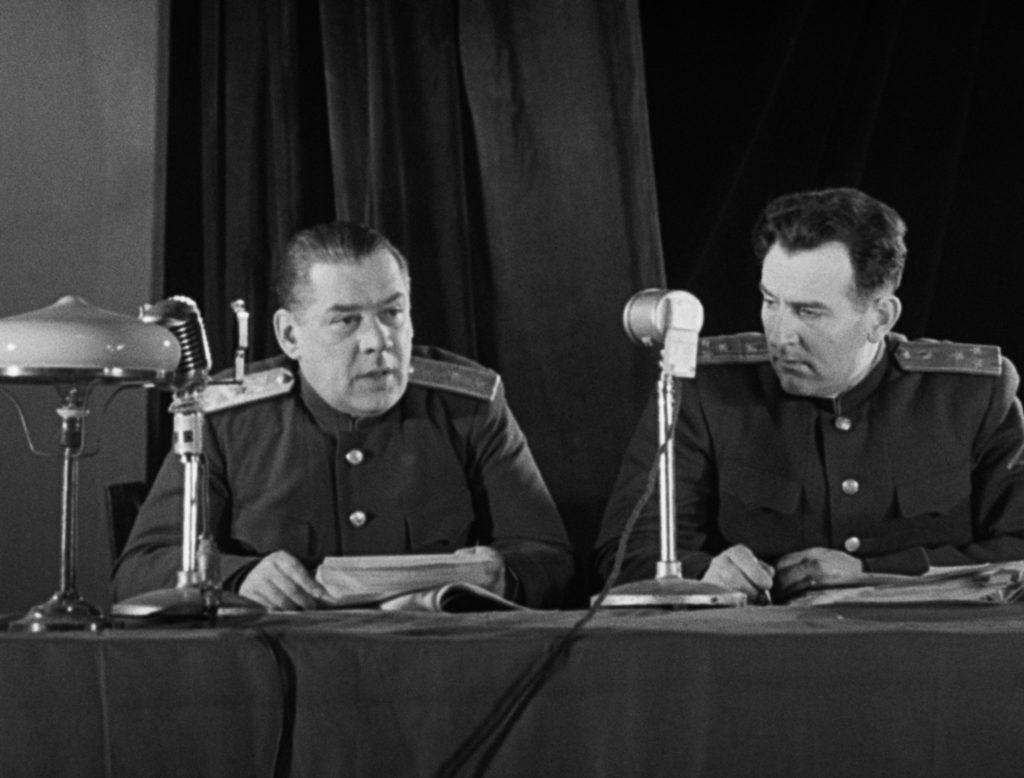Venice review: The Kiev Trial (2022)

The Kiev Trial is at once a lesson from the past and a dispatch from the future. Salvaging footage of a 1946 criminal tribune found in the process of making Babi Yar. Context(2021), Sergei Loznitsa’s fascinating excavation of one of the very first post-WW2 trials offers a keen study of the banality of evil, all the more topical due to the current situation in Ukraine.
The Nuremberg Trials are well-known and documented. They even inspired a surprisingly robust and serious Hollywood film, Stanley Kramer’s Judgement at Nuremberg (1961), which brought the evils of the Holocaust directly into Western cinemas and made an impressive $16 million at the time (around $158 million today). But the Kiev Trials, part of a series of Soviet-run trials of Nazi soldiers, are far-less documented.
Fifteen Nazis stood on trial between January 17th and 18th, 1946. Three hours of footage shot by the Moscow Central Documentary Studio have been found, with only a small amount previously shown to audiences as part of a short newsreel. Working again with the Babi Yar Holocaust Center and his trusted team of researchers and collaborators — including genius sound designer Vladimir Golovnitski, who helps to really bring these archive films to life — Loznitsa keenly documents the trial from beginning to end; recounting many shocking, yet unsurprising acts.
Loznitsa’s documentaries can often feel like schoolwork; no doubt their lessons and images are good for you, yet a lingering boredom can creeps in as the core message is repeated over and over again. But The Kiev Trial — cut to a mere 100 minutes — never overstays its welcome, offering a deeply compelling study of victim and perpetrator alike. Perhaps Loznitsa could’ve cut the repetitive translations between German and Russian, yet it’s worth paying attention to the reaction of the audience as they finally understand just what these soldiers believe.

The most telling contrast lies between the officers on trial and the people who survived their atrocities. While the Germans have no issue recounting their crimes in rather plain terms, while sometimes trying to excuse themselves on technicalities, the language of the victims is far more forceful and evocative. One man says he saw people treated “like firewood” while another woman explains how she escaped death by firing squad through a mixture of ingenuity and luck. The cameramen softly pan between the victims and the men responsible for their suffering, revealing absolutely no remorse on behalf of the Nazis. Just a certain fear as they await their almost inevitable death.
It shows that fascism is, by its very nature, a philosophy of cowardice. The state both tells you what you should do while also giving you a means to exculpate yourself from any wrongdoing. And if state tells you that the people you are killing are untermenschen, then you should have no reason to feel any guilt whatsoever. This is the kind of evil that can occur when one has the full power of a highly bureaucratic, totalitarian state behind it. It’s the kind of evil that should never be tolerated in any form whatsoever.
That’s a sentiment easier felt than enforced, as a similar genocidal mania grips the upper echelons of Russian society today, with Ukraine once again the victim. (But in a bitter twist of irony, the Russian government are claiming that actually Ukraine is the Nazi country, distorting the existence of certain Neo-Nazi battalions — tolerated in response to the 2014 invasion in the first place — into “proof” that the entirety of Ukraine itself has descended into fascism.) And as Russian soldiers currently being tried in Ukraine for war crimes and murder claim the “following orders” defence. It’s sad to see how little has been learned from the horrors of the past. Forgive my pessimism, but it makes rather depressed; a film like this can only illuminate mankind’s capacity for evil, but cannot really do anything to diminish it, especially as fascism relies on the absence of genuine art or culture.
And if Loznitsa still finds himself buffeted between being hated by the Russian state and shunned by the Ukrainian film community, he doesn’t let it affect his filmmaking, which is crisp, precise, and evidently on the right side of history. This is a necessary film, if a futile gesture in the face of the current station.
But one thing gives me comfort about our future world: in our digital age, the next Kiev Trials won’t be laying in a vault for over seventy-five years. Perhaps then it will be harder for the next Hitler or Putin to run roughshod over the lessons of history. At least one can only hope so.

Country: Ukraine, Netherlands
Language: Russian, German, Ukrainian
Year: 2022
Runtime: 106′
Written/ Directed by: Sergei Loznitsa
Production: Atoms & Void (Maria Choustova, Sergei Loznitsa) Babyn Yar Holocaust Memorial Center (Ilya Khrzhanovskiy, Max Yakover)
Editor: Sergei Loznitsa, Tomasz Wolski, Danielius Kokanauski
Sound: Vladimir Golovnitski
Visual Effects/ Restoration: Jonas Zagorskas
















